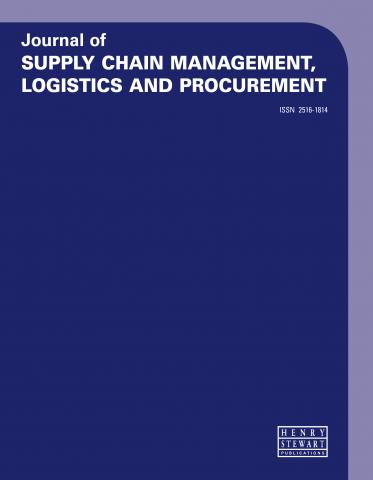"Time is a very precious commodity to all industry practitioners in operations and making time in a busy schedule to attend seminars and market events is extremely difficult. This journal brings thought-provoking articles and peer opinions to your desk and enables the time-constrained practitioner to gain an insight into market issues covering a wide range of topics. There are only a few journals with an operational focus; being peer reviewed ensures it has relevance and worth reading."
Modernising the company Edison built: Applying innovation and digitisation at GE appliances
Click the button below to download the full text of the article.
Abstract: GE Appliances (GEA), a Haier company, has implemented new, innovative strategies as part of its five-year transformation goal of knowing and serving consumers better and creating a winning culture where employee entrepreneurs thrive. Through implementing a new microenterprise business model with a ‘Zero Distance’ philosophy and creating a digital supply chain, GEA has become the fastest growing appliance company in the US. A summary of the company’s new business model, including details on the microenterprise structure and new House of Brands, is presented in this paper, as well as several key components of the digital supply chain implementation. In addition, the company has a bold philosophy on upskilling its workforce, and this paper shares several examples of talent development programmes GEA has implemented to develop the digital supply chain leaders of tomorrow.
Keywords: digital supply chain; transformative leadership; business model; Zero Distance; company transformation; entrepreneurship; microenterprises
Bill Good began his career in manufacturing on an assembly line while working his way through college. His experience sparked his passion and interest in manufacturing as a career, and he set a goal to one day lead manufacturing for a large US company. Over the course of Bill’s 33-year career, he has honed his knowledge of supply chain management through his various roles of increasing responsibility at Tri-Glass, Charbroil, Whirlpool and now in his dream job as the vice president of manufacturing at GE Appliances, a Haier company. Bill holds a BS in operations management from Auburn University and an MBA and a MS in human resources from Troy State University. Bill is a certified Six Sigma Black Belt, with expertise in Theory of Constraints, HOSHIN Planning and the Toyota Production System. He places a high value on employee engagement, building relationships and leading transformational change. Currently, Bill and his team are focusing on expanding plant capacity, increasing automation in the supply chain, and implementing new digital tools to create a Zero Distance approach with consumers.



